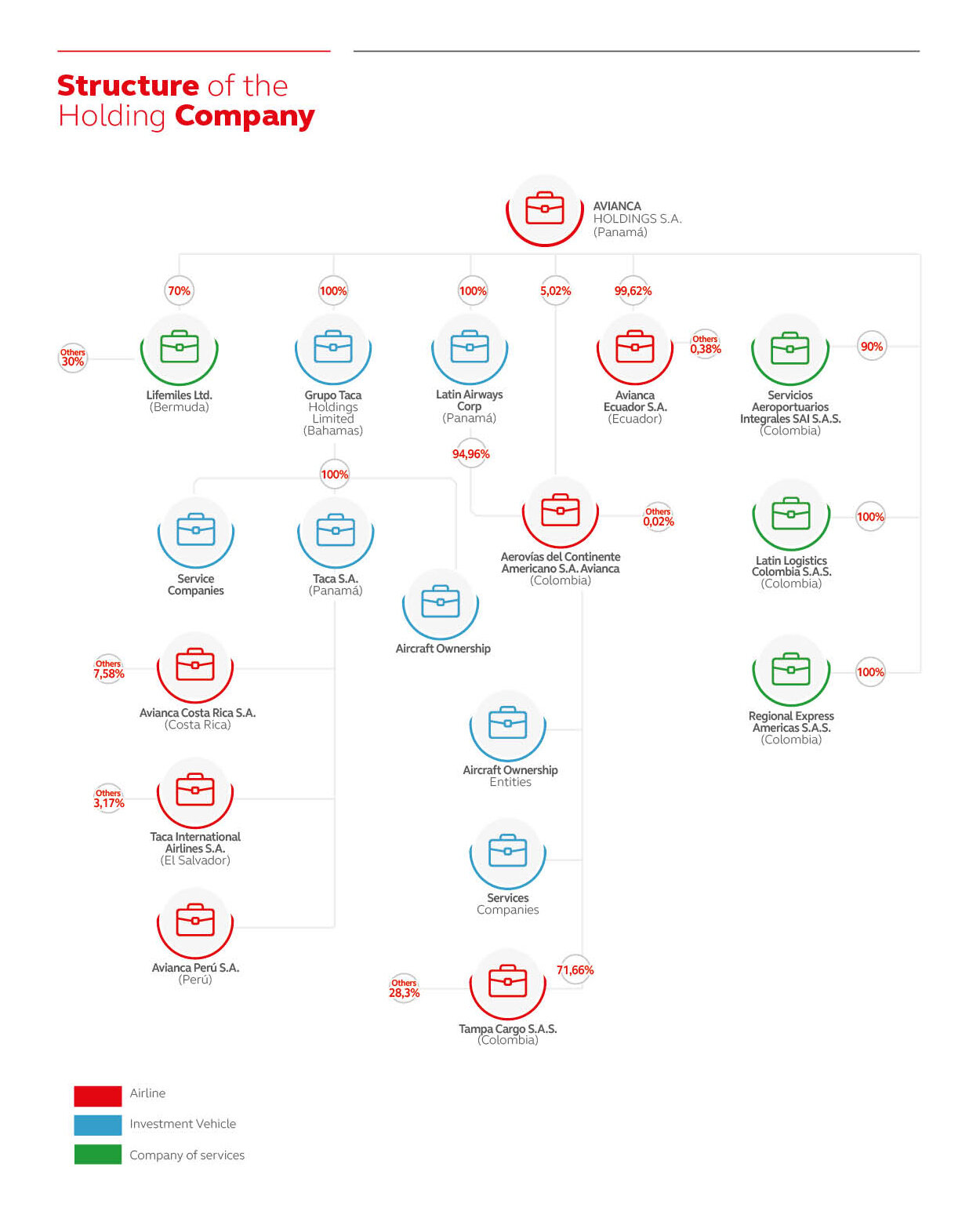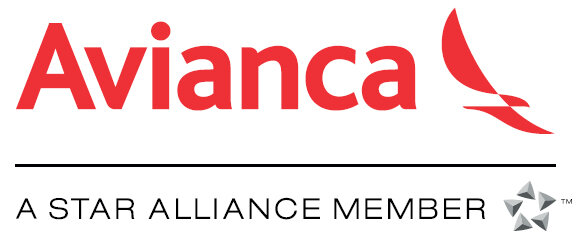Avianca Airlines Suspends Ticket Sales With Cuba; Carnival Corporation Had A Similar OFAC Issue In 1997
/Bogota, Colombia
October 31, 2019
“Panama City, Panama-based Avianca Holdings (“Avianca”) informs that, while they resolve a pending matter with the U.S. Office of Foreign Assets Control (“OFAC”) related to their Cuba-related commercial operations, Avianca will suspend ticket sales to and from Cuba as of October 31, 2019. Any additional information will be shared in a timely manner with Avianca’s clients and the general public.”
History Of The Decision
“As previously reported on October 23rd, because of the financial structure to obtain a loan, Synergy Aerospace Corp. (“Synergy”), a majority shareholder of Avianca Holdings, formed in Delaware, United States, the limited liability company BRW, to which Synergy unilaterally transferred all its shares of Avianca Holdings. At that moment, Avianca became considered a company subject to U.S. regulations with respect to the economic embargo that the United States holds against Cuba. Therefore, after reviewing the case, Avianca identified that its commercial operations to and from Cuba could have unintentionally infringed the U.S. Cuban Assets Control Regulations (the “CACR”). Avianca voluntarily disclosed this situation to the U.S. authorities (OFAC), and Avianca is cooperating with OFAC to provide the information necessary to achieve timely resolution of this matter.”
23 October 2019
“Avianca Holdings S.A., a company organized under the laws of Panama (together with its subsidiaries, the “Company”), recently became aware that it is presently subject to U.S. jurisdiction for purposes of certain U.S. sanctions laws and regulations administered by the Office of Foreign Assets Control (“OFAC”) of the U.S. Department of the Treasury. This jurisdictional nexus was established as a result of the transfer, on November 9, 2018, by the Company’s parent company, Synergy Aerospace Corp. (“Synergy”), of approximately 78% of the Company’s voting common shares (the “Share Transfer”) from a Panama based company to a Delaware limited liability company wholly-owned by Synergy (“BRW”). Synergy formed BRW and effected the Share Transfer unilaterally in connection with BRW obtaining a loan from United Airlines.”
”Having become aware that as a consequence of the ownership change the Company is considered a person subject to U.S. jurisdiction by OFAC, the Company engaged outside counsel to conduct a review aimed at identifying any potential violations of U.S. sanctions regulations. As a result of this review, the Company identified that the regularly scheduled commercial passenger flights between cities in Central and South America and Havana, Cuba and related Cuba operations that it has historically conducted may have constituted inadvertent violations of the U.S. Cuban Assets Control Regulations (the “CACR”) during the period following the Share Transfer. During the period beginning on the date of the Share Transfer and ending on September 30, 2019, such flights to and from Havana, Cuba comprised an immaterial amount of the Company’s gross revenues.”
”On September 25, 2019, the Company submitted to OFAC a preliminary voluntary self-disclosure addressing such potential inadvertent violations. The Company also plans to submit to OFAC a request for specific authorization for its subsidiary airlines to continue to conduct flights to and from Cuba during a wind-down period or until such time as the Company is no longer subject to the CACR. There can be no assurance that such request will be granted.”
”The Company is committed to fully cooperating with OFAC, but it is too early to predict what action OFAC may take in this regard (including sanctions and fines) and what effect such action could have on the Company’s reputation, business, financial position or results of operations.”
”This Report on Form 6-K is incorporated by reference into the Company’s Exchange Offer Memorandum and Consent Solicitation Statement, dated August 14, 2019, as supplemented, in respect of the Company’s previously reported offer to exchange any and all of its 8.375% Senior Notes due 2020 for newly issued 8.375% Senior Secured Notes due 2020.” LINK To SEC Form 6-K Filing
A Similar Problem In 1997 For Carnival Corporation
From 1995 until 1998, Genoa, Italy-based Costa Crociere operated the “Costa Playa” cruise ship which visited the Republic of Cuba and a subsidiary of Costa Crociere developed and managed the US$11 million passenger ship facility at the Port of Havana. In 1997, Miami, Florida-based Carnival Corporation & plc (2018 revenues exceeded US$18.8 billion) purchased a 50% interest in Costa Crociere.
In 1998, the Office of Foreign Assets Control (OFAC) of the United States Department of the Treasury in Washington, D.C., required Carnival Corporation to cease both the operation of the “Costa Playa” to the Republic of Cuba and the management of the passenger ship facility. Costa Crociere had a 50% interest in Silares Terminales del Caribe, a joint venture with the Republic of Cuba established to manage three cruise ship terminals in Havana, Santiago de Cuba and Isla de la Juventud.
In 2000, Carnival Corporation & plc purchased the remaining 50% of Costa Crociere from Peterborough, United Kingdom-based Airtours Group plc. LINK To Media Release
The OFAC authorizes companies subject to United States law to have non-controlling investments in third country companies that have commercial activities within the Republic of Cuba provided that the investments do not result in control in fact of the third country company and provided that a majority of the revenues of the third country company are not produced from commercial activities within the Republic of Cuba [OFAC 4 March 1994].
Today, Istanbul, Turkey-based Global Ports Holding (2018 revenues exceeded US$124 million), which also has a registered office in London, United Kingdom, and is listed on the London Stock Exchange (LSE) has “a management agreement in Cuba to advise and consult on cruise port management best practice. The cruise terminal is in the Sierra Maestra complex, in San Francisco pier, with a current capacity for two ships.”
According to the company, the duration of the management contract is thirty-three (33) years with “no future Capex Obligation” and “Tariff Discretion.” The company reported that the management contract was not a result of a “Competitive Process” and the Process Description was defined as an “Uncompetitive tender” with comments “GPH submitted and unsolicited tender.” However, the 2018 Annual Report for the company references that the management contract is for fifteen (15) years.
According to the company, “Global Ports Holding Plc (GPH) is the world's largest [independent] cruise port operator with an established presence in the Caribbean, Mediterranean, Asia-Pacific regions, including extensive commercial port operations in Turkey and Montenegro.”
Global Ports Holding Plc may be subject to a lawsuit under Title III of the Cuban Liberty and Democratic Solidarity Act of 1996 (known as “Libertad Act”). Title III authorizes lawsuits in United States District Courts against companies and individuals who are using a certified claim or non-certified claim where the owner of the certified claim or non-certified claim has not received compensation from the Republic of Cuba or from a third-party who is using (“trafficking”) the asset.
Thus far, Miami, Florida-based Carnival Corporation; Miami, Florida-based MSC Cruises; Miami, Florida-based Norwegian Cruise Line Holdings; and Miami, Florida-based Royal Caribbean Cruises are defendants in lawsuits using Title III due to their operations in the Republic of Cuba.
LINK To Complete Analysis In PDF Format
El Nuevo Herald
Miami, Florida
31 October 2019
Avianca Holdings announced Thursday the immediate suspension of the sale of tickets to Cuba "while resolving a pending issue" with the US authorities on its operations on the island that is related to the economic embargo that weighs on the Caribbean country.
The measure was taken because Avianca Holdings constituted this month a limited liability company in the United States to obtain a loan, which is subject to the regulations of that country.
“Avianca Holdings informs that, while resolving a pending issue with the Office of Foreign Assets Control (OFAC), related to the commercial operation to Cuba, the company will suspend the sale of tickets to and from Cuba as of December 31 October 2019, ”the company said in a statement.
Avianca currently has a daily flight to Havana from Bogotá and another from San Salvador, which will continue to operate while the case is resolved, but it is not ruled out that the suspension of ticket sales extends to operations as such.
"The tickets already issued remain normal and will be fulfilled" but in the hypothetical case that the measure is extended to the suspension of flights the company will have to accommodate other airlines to those who have already bought tickets, a source of the company.
On October 23, Avianca Holdings announced that, as part of the financial structure for obtaining a loan, its majority shareholder, Synergy Aerospace Corp, established in the state of Delaware (USA), the limited liability company BRW, a which unilaterally transferred all its shares of the conglomerate.
With that operation "Avianca came to be considered as a company subject to US regulations regarding the economic embargo that said country is holding against Cuba," the company added.
“In that sense, after reviewing the situation, the company identified that its commercial operations to and from Cuba could have involuntarily violated US regulations for the control of Cuban assets,” of which Avianca voluntarily informed the OFAC.
The company added that it cooperates with that agency "to deliver the necessary information and timely resolve this situation."
The Government of the United States activated on May 2, Title III of the Helms-Burton Act, which allows Americans to sue companies operating in land or real estate in Cuba expropriated after the 1959 Revolution, including airports.
As part of the tightening of the US embargo on Cuba by the Administration of President Donald Trump, last Friday the Government announced the ban on air service between the United States and Cuba within 45 days, a measure that will affect nine airports in the island and of which the only exempt will be that of Havana.
EFE
Madrid, Spain
31 October 2019
Avianca announced that as of Thursday, October 31, the sale of tickets to travel to the Greater Antilles was suspended while resolving an issue with the US Office of Foreign Assets Control. The Colombian airline Avianca suspends the sale of tickets to Cuba
BOGOTA - The Colombian airline Avianca announced Thursday the suspension of flights to Cuba after in recent days the company reported that its commercial flights to and from the island could have violated US measures on Cuban assets.
According to a report by El Espectador, Avianca announced that as of Thursday, October 31, the sale of tickets to travel to the Greater Antilles was suspended while resolving an issue with the Office of Foreign Assets Control of the United States ( OFAC).
While the US authorities respond to their requests, such as a license to continue flights to the Caribbean island, Avianca decided to suspend the sale of tickets and said that "any additional information will be shared in a timely manner to customers."
It is worth remembering, El Espectador points out, that the company must be accountable to the US since November 2018, when Synergy Aerospace Corp., the company's parent company, transferred 78% of the ordinary and voting shares of a company established in Panama to BRW, which is incorporated in the state of Delaware (USA) and is its property.
The finding was the result of an external review contracted by the company to identify any potential violation of the United States sanction rules, the report concludes.
The Government of Donald Trump announced last Friday the cancellation of flights of US airlines to various destinations on the island, except Havana, a decision that deepens the sanctions on the Caribbean nation since the activation on May 2 of Title III of the Helms-Burton Act.
Washington has reinforced its policy against the Cuban regime and blames it for being an ally of the dictatorship of Nicolás Maduro in Venezuela.
The measures taken by the Trump administration seek to prevent US dollars from reaching the coffers of the island's government and military companies that are responsible for exercising repression against dissidents and opponents.



